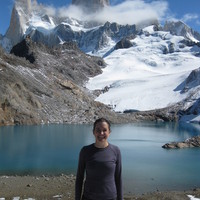Emily Wakild
Boise State University, History, Faculty Member
- History, Patagonia, Amazonia, US-Mexico Borderlands, Latin American Studies, Mexico History, and 12 moreConservation Biology, Biodiversity, Ecology, Science Communication, Environmental Education, Human-wildlife conflicts, Conservation, Chile, Environmental History, Human-Animal Relations, Protected areas, and Wildlife Conservationedit
- I'm a social and environmental historian interested in how societies endow landscapes with collective value. Concret... moreI'm a social and environmental historian interested in how societies endow landscapes with collective value. Concretely, I want to understand how, when, and why people make parks. I started out looking at the environmental policies that came out of the Mexican Revolution. I've been slowly moving south looking for appropriate comparisons. I am now beginning research into the role of science and scientists in parks across Amazonia and Patagonia.edit
Research Interests:
Environmental histories of Latin America have reached a critical mass. The breadth, depth, and sophistication of this new literature merit comparisons to less conventionally environmental topics, such as labor and politics, and new... more
Environmental histories of Latin America have reached a critical mass. The breadth, depth, and sophistication of this new literature merit comparisons to less conventionally environmental topics, such as labor and politics, and new strands of environmental research, such as environmental justice. While the field of Latin American environmental history for the twentieth century is far from complete or comprehensive, one of its strengths is the simultaneous consideration of social relationships (including struggles for justice) and the natural world. Rather than a need to catch up with other historiographies that have bifurcated environmental history and environmental justice, this integrated model of investigation places recent scholarship in a strategic place to make history more policy relevant. Going forward, scholars should continue to find and fuse environmental history and environmental justice studies and refrain from letting distinctions among subfields conceal rich thematic harmony.
Research Interests:
Research Interests:
Research Interests:
Research Interests:
... We each bring our individual disciplinary questions to the concept of contestation: Gillian Overing asks questions about medieval places. If perception of place is always ... Page 9. Kirby, Jack Temple. Mockingbird Song: Ecological... more
... We each bring our individual disciplinary questions to the concept of contestation: Gillian Overing asks questions about medieval places. If perception of place is always ... Page 9. Kirby, Jack Temple. Mockingbird Song: Ecological Landscapes of the South. Chapel Hill: ...
